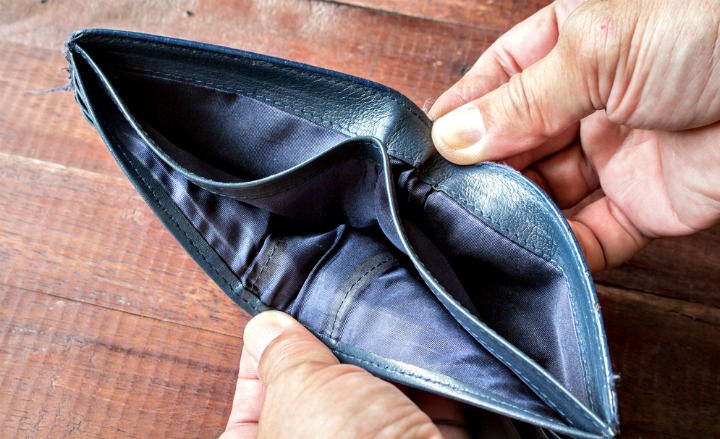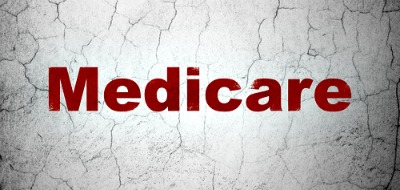What Can You Do If Can’t Afford Your Medicare Premiums?

You rely on Medicare to help pay for hospital stays, doctor visits and your prescription drugs. Problem is, you’re struggling to pay your monthly premiums for both Medicare Part B, the insurance program that helps pay for your doctor visits, blood-sugar monitors and flu shots, and Medicare Part D, which helps you pay for those prescription drugs you take each day.
You’re worried that you will no longer be able to afford either type of insurance. At the same time, you have too high of an income to qualify for Medicaid, the insurance safety net for people with low incomes.
CHECK OUT: How Lawmakers Will Shape the Future of Medicare
There is help. Medicare experts say that the federal government, along with state-based agencies, offer assistance programs designed to lower the costs of Medicare. If you can qualify for these programs − and the odds are high that if you are struggling financially, you can − those burdensome premiums might look a lot more affordable.
“There are many different programs available that provide assistance for people struggling to pay their Medicare premiums,” says Joel Ohman, a Tampa-based cerfitied financial planner. “As a general rule of thumb, it is best to start at the local level looking for help, then proceed to the state level and then finally to the federal level.”
How much will my Medicare premiums cost?
Medicare is an affordable health insurance program for many people. But those who are struggling with a limited monthly income might find the monthly premiums to be a burden. In addition to those costs, many seniors also need affordable supplemental Medicare insurance.
Most people don’t pay any monthly premiums for Medicare Part A, which covers hospital stays. Medicare Part B, also known as Medicare medical insurance, though, does come with a monthly premium. For most people who enrolled in Part B before 2016, that monthly fee is $104.90.
For those who enrolled in the Part B in 2016 for the first time, that monthly premium is usually $121.80.
Medicare Part D, the prescription-drug arm of Medicare, charges monthly premiums, too. These premiums vary according to plan, but you can expect to pay from $10 to $100 a month.
You could also choose to take out a Medicare Part C plan. These are plans offered by private insurance companies that cover everything that is included in Medicare parts A and B, but also offer additional coverage. These plans come with their own monthly premiums that vary according to the depth of coverage offered by them. If your income is low, you probably aren’t paying for one of these pricier Medicare plans.
You might struggle to pay for your Medicare premiums if your household income is low but not low enough to qualify for Medicaid insurance.
Options when you can’t afford your Medicare premiums
What help is available if you are struggling to make those premiums each month? Cullen Teska, a Medicare products specialist in Wisconsin, says that your first step should be to contact your local aging Aging & Disability Resource Center, a sort of one-stop shop of resources designed to help older U.S. residents. You can find a list of state resource centers here. 
Teska also recommends that you investigate whether your state offers a state pharmaceutical assistance program that can help reduce the costs of your prescription drugs. Not all states offer these, but many do, and the financial relief can be significant.
Indiana, for instance, offers HoosierRx, which provides financial assistance of up to $70 a month to help state residents pay for their prescription drugs.
You can find a list of state pharmaceutical assistance programs here.
Generic drugs can also save you significant dollars, Teska says. It always pays to ask your doctor if a lower-cost generic form of your medication exists.
“Is a generic prescription available? Can a mail-order program save you money?” Teska asks. “You can save hundreds of dollars a years through these alternatives.”
Randy Frey, vice president of senior services at New York’s FNA Insurance Services, says that Medicare recipients struggling to make their co-pays for Medicare Part D can always contact the manufacturers of their prescription medications.
“Very often, there are substantial discounts available from the manufacturers,” Frey says.
Medicare Savings Programs are another source of financial assistance, Ohman says. These programs often provide not only provide help with premiums, but will also pay part or all of your deductibles, co-insurance and co-payments, if you meet certain income requirements.
RELATED: 4 Things Not Covered by Medicare
There are several types of Medicare Savings Programs. The Qualified Medicare Beneficiary Program, Specified Low Income Medicare Beneficiary Program and Qualifying Individual Program are all available to Medicare recipients who are struggling with their finances.
You will have to meet certain income requirements to qualify for these programs. Individuals, for instance, must make no more than $1,010 a month to qualify for Qualified Medicare Beneficiary Program assistance, while married couples must make no more than $1,355 a month.
A married couple can make no more than $1,622 every month to qualify for the Specified Low Income Medicare Beneficiary Program, while an individual can earn no more than $1,208 a month to qualify.
To apply for these programs, call Medicare at 1-800-MEDICARE. Make sure to have your account information available.
State Health Insurance Assistance Programs, better known as SHIPs, are another resource for those struggling to make their Medicare premiums. These provide one-on-one insurance counseling and assistance services to Medicare beneficiaries and their caregivers. All 50 states offer SHIPs. You can find your state’s SHIP here.
Frey also recommends that recipients explore the Low-Income Subsidy, also known as Extra Help, for Medicare Part D. This program provides financial assistance to recipients struggling to pay the premiums and co-pays associated with their prescription drugs.
To apply for this program, call your local Medicare office.
